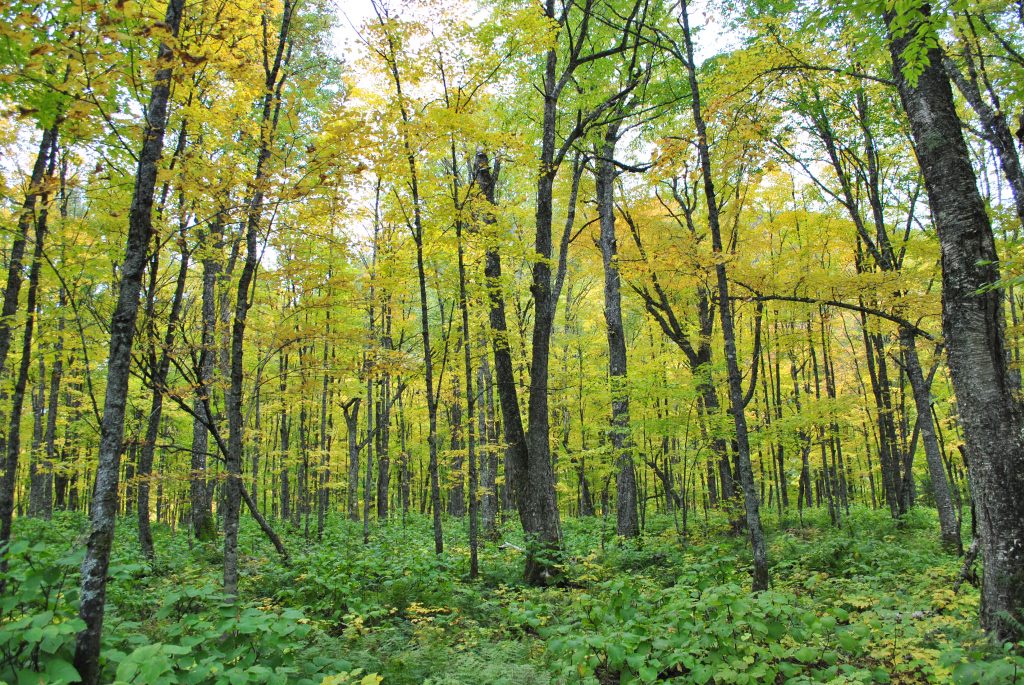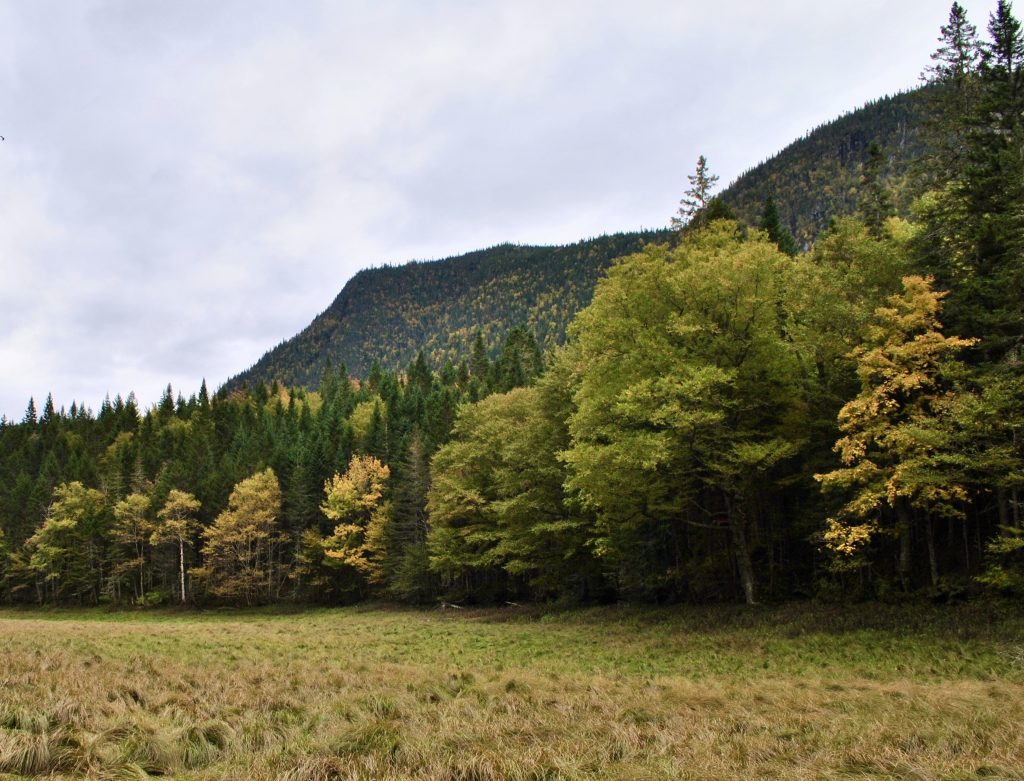The need for smarter management for more resilient forests
by L’Université du Québec à Montréal
9/1/2020
Current forest management in northern temperate regions like the Centre-du-Quebec is not suitable to maintain the resilience of the forest under future climate change, shows a study published in Ecological Applications.
There is no doubt that the climate is changing very fast. Slow-growth organisms such as trees are struggling to keep pace with these rapid changes, and particularly to respond quickly to disturbances affecting the ability of the forest to provide important ecosystem services (i.e., wood, recreation, clean water). So, how will forests in southern Quebec look like in a hundred years from now if we keep managing in the same way? Will they be resilient enough to cope with an uncertain future?
This is what researchers at UQAM have been investigating in a study recently published in the journal Ecological Applications. The researchers combined ecological simulation modelling with network analysis, representing the entire region of the Centre-du-Quebec as a functional network of forest patches, which are heavily fragmented by agriculture and urban areas. This novel method allowed them to analyze how the forests of the region will vary in the coming decades, such as changes in species biomass and forest types, but also functional diversity and functional connectivity, two important indicators for resilience.

Photo courtesy of Marco Mina.
“In northern temperate regions like the Centre-du-Quebec, climate change will likely promote forest productivity, as growing season for trees will be longer. Combined with natural disturbances, warming will also favor growth and dominance of hardwood species at the expense of boreal conifers” explains Marco Mina, postdoc at the Department of Biological Science and of the Center for Forest Research who lead the analysis. “However, this would result in a loss in functional diversity and connectivity at the landscape level. This would hamper forest landscape resilience in the long term unless specific management actions to diversify these forests are taken in the coming years”.
The idea of looking at fragmented landscapes as a network could help coordinating silvicultural practices, which are usually planned at the stand or ownership scale, at a wider landscape or regional spatial scale. However, since it is not feasible to intervene everywhere across large forest regions due to logistics and limited resources, planning interventions in limited strategic areas based on modelling forecasts and network analysis could be the key to maintain landscape resilience with minimal efforts.
The research, realised in collaboration with colleagues at the University of Toronto and Harvard Forest, see Christian Messier among the co-authors. “The study shows that forest management could become a positive force in order to increase the resilience of our forests in the face of the various ecological, biological and economic threats and uncertainties that await our forests”, explains Messier, professor at UQAM and scientific director at ISFORT UQO where he holds the Canada Research Chair on forest resilience to global change. “To do this – he adds – forest managers must agree to change the current forest paradigm which consists in maximizing the productivity of a small number of tree species at the expense of maintaining maximum diversity that promotes resilience”.

Photo courtesy of Marco Mina.
Climate change or global change?
Climate warming is not the only uncertainty that our forest will have to face in the coming decades; exotic pests and pathogens, shifts in socio-economic demands, natural disturbances like fire and windstorm might also impact our forests unexpectedly. That is why it is so important to not only adapt our forest to future climate but also to equip them with all the necessary properties that make them more ready to recover after unexpected events.
This study represents the first stage towards a smarter management approach to integrate the functionality of species-traits into a functional complex network as a flexible and multi-scale way to manage forests for the Anthropocene. Without doubt, forest management in Quebec and in the world need to become more innovative, smarter, and proactive than conventional silvicultural regimes. The upcoming challenge is to evaluate, design and propose feasible coordinated landscape-level initiatives to foster functional diversity and functional connectivity, such as diversifying current stands or to establishing mixed-species plantations.
Read this release in French at UQAM: https://www.actualites.uqam.ca/2020/gestion-forestiere-mal-adaptee-changements-climatiques
Read the paper in Ecological Applications: https://esajournals.onlinelibrary.wiley.com/doi/abs/10.1002/eap.2221